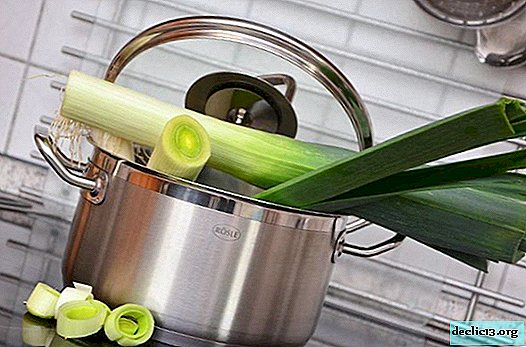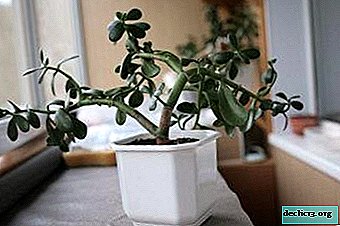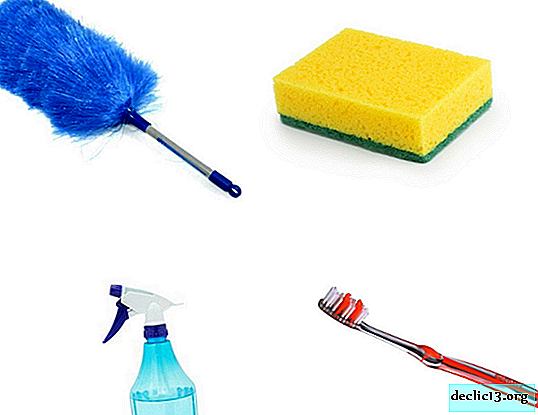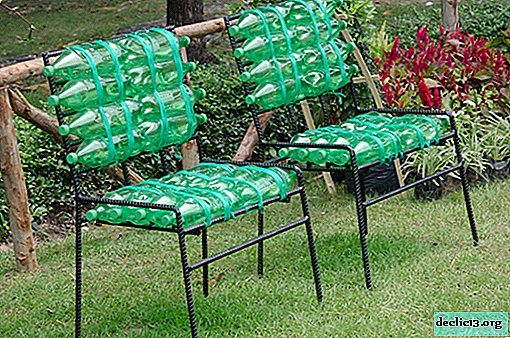Useful properties and application of hibiscus. How does it affect human health, are there any contraindications?
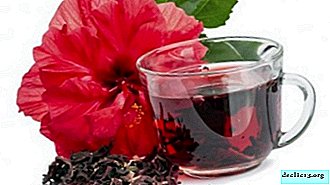
Hibiscus is one of the varieties of Chinese roses, which is a popular houseplant and at the same time a favorite for households. Everyone is accustomed to seeing the plant as a living decoration for the home, but few people know that hibiscus has many useful properties. Moreover, with the help of it are still being treated for diseases and ailments. In this article we will consider the beneficial properties of a plant, their use, contraindications and so on.
Therapeutic and beneficial properties
Healing qualities
People evaluated the healing properties of hibiscus a very long time ago - even in the Ancient East. As was said, they were treated for serious illnesses and illnesses. These include diseases of the bladder, gastrointestinal tract, and also used the plant as a bactericidal, anticonvulsant and diuretic. As for the hibiscus flowers, they were preferred to be used as a hemostatic effect, and also as a medicine against vascular swelling.
Years passed, but the houseplant did not remain aloof from the medicine. Despite all the successes of the modern medicinal drug, hibiscus continues to be relevant. To this day, it is used as a healing tea, which perfectly removes even the strongest thirst, cleanses the body of toxins and toxins, promotes weight loss, reduces pressure.
The healing properties of Chinese roses are also used as a tool that serves to lower cholesterol and blood sugar.How useful is such a culture?
 Hibiscus has a wide range of beneficial properties, the main of which are:
Hibiscus has a wide range of beneficial properties, the main of which are:
- It has anthelmintic properties, helps to cleanse the body of helminthic invasions.
- Hibiscus flowers contain ascorbic, malic, citric acid.
- Hibiscus improves the body's immune system, increases its protective function.
- The Chinese rose is effective in treating juvenile acne.
Chemical composition
Hibiscus contains useful substances that are important for the body macro and trace elements:
- proteins 0.43 g;
- fats-0.65 g;
- carbohydrates-7.41 g;
- potassium-9 grams;
- calcium is 1 milligram;
- magnesium is 1 milligram;
- iron-8.64 milligrams;
- zinc is 0.12 milligrams;
- copper is 0.073 milligrams.
How does it affect a person: lowers or raises blood pressure?
Speaking about the effect of this plant on pressure, you should understand: it increases it or, conversely, lowers it. The answer to this question is worth remembering - hibiscus lowers blood pressure. If you suffer from high blood pressure and want to lower it, Chinese rose tea will come to your aid.
To prepare it, you need to brew dry flowers with boiling water and let it brew for a while. It is recommended to take regularly in small doses.
Photo
Further on the photo you can see how the hibiscus healing plant looks.





Contraindications
Despite the benefits of the plant, it can cause harm to health. Hibiscus should not be consumed by people suffering from:
- peptic ulcer of the stomach;
- duodenal ulcer;
- high acidity;
- gastritis of the stomach;
- other diseases of the gastrointestinal tract.
The consumption of Chinese roses in the presence of these diseases can lead to their rapid complication.
Is it possible for pregnant women?
Often a woman, being in a position, feels an irresistible desire to eat something sour, and here hibiscus tea, the main ingredient of which is hibiscus, usually comes to her aid.
Doctors say that the plant during pregnancy has a lot of positive effects on the woman’s body.Among them it is worth highlighting:
- elimination of toxins;
- fight against pathogenic microbes and bacteria;
- strengthening the walls of blood vessels from the inside;
- significant improvement in digestion;
- flatulence reduction.
Some mothers say that when they started drinking hibiscus during pregnancy, they noticed an improvement in the functioning of the nervous system, which is very important in the situation.
Indications for use
Hibiscus is usually used to make tea called hibiscus., which contains the flowers of this plant. They contain beneficial substances and organic acids.
When to take?
The infusion of hibiscus flowers is recommended to be taken as a means to increase appetite, as well as as a choleretic agent.
What diseases can be cured?
 Hibiscus can cure many diseases. Among them, it is required to note such as:
Hibiscus can cure many diseases. Among them, it is required to note such as:
- respiratory tract disease;
- swollen;
- boils;
- blackheads;
- skin diseases of varying severity;
- prevents premature gray hair;
- prevents hair loss.
What to cook from a plant?
The Chinese rose is suitable not only in the form of tea, but also in the form of some dishes, often sweet. They should include jam, jam, candied fruit.
Ducan Jam
 Ingredients :
Ingredients :
- water-0.5 liters;
- hibiscus petals -30 grams;
- any sweetener.
Cooking method:
- Pour 0.5 liters of water into the pan, put the hibiscus petals, bring to a boil.
- Add sweetener at the end and bring to a boil.
- Boil the mixture for another half hour, then remove from heat and let cool.
- Put dessert in the refrigerator to set.
Flowering portion in syrup
 The ingredients required are the same as in the previous recipe.
The ingredients required are the same as in the previous recipe.
Cooking method:
- Pour water into a saucepan, add sugar and bring to a boil.
- Then let the syrup cool.
- When the syrup has cooled, add the petals to it and let it brew.
- Pour the resulting syrup into a jar and leave in the refrigerator.
You can use it as regular jam with tea.
For face
In addition to treating various diseases, hibiscus is used to maintain healthy facial skin. Masks and creams are prepared from it against rashes of acne and blackheads. Compress from the leaves of this plant, which helps in cleansing the face, can be made independently.
 Would need:
Would need:
- hibiscus leaves;
- cotton pads;
- hot water.
Cooking method:
Brew the hibiscus leaves in hot water and leave to brew in a dark place. After 3 days, the compress can be used by soaking cotton pads and applying to the face.
Other purpose
Seasoning
 Ingredients :
Ingredients :
- hibiscus leaves;
- rose leaves;
- sugar and salt to taste.
Cooking method:
Mix frayed leaves of rose and hibiscus in equal proportions, add sugar and salt to taste. You can use seasoning as additives to baking, fruit salads or add to coffee as a sprinkle.
Leg compress
 Would need:
Would need:
- hibiscus leaves;
- gauze;
- warm water.
Cooking:
- You need to brew the leaves of a Chinese rose in hot water.
- Next, soak gauze in the resulting solution and apply to the feet.
A compress is applied in case of swelling of the legs or with excessive load.
In conclusion, it should be noted that hibiscus is a unique plant, in fact, in addition to the favorite indoor flower, it has a lot of useful properties, which are still in demand in traditional medicine and are a panacea for the treatment of certain diseases.


